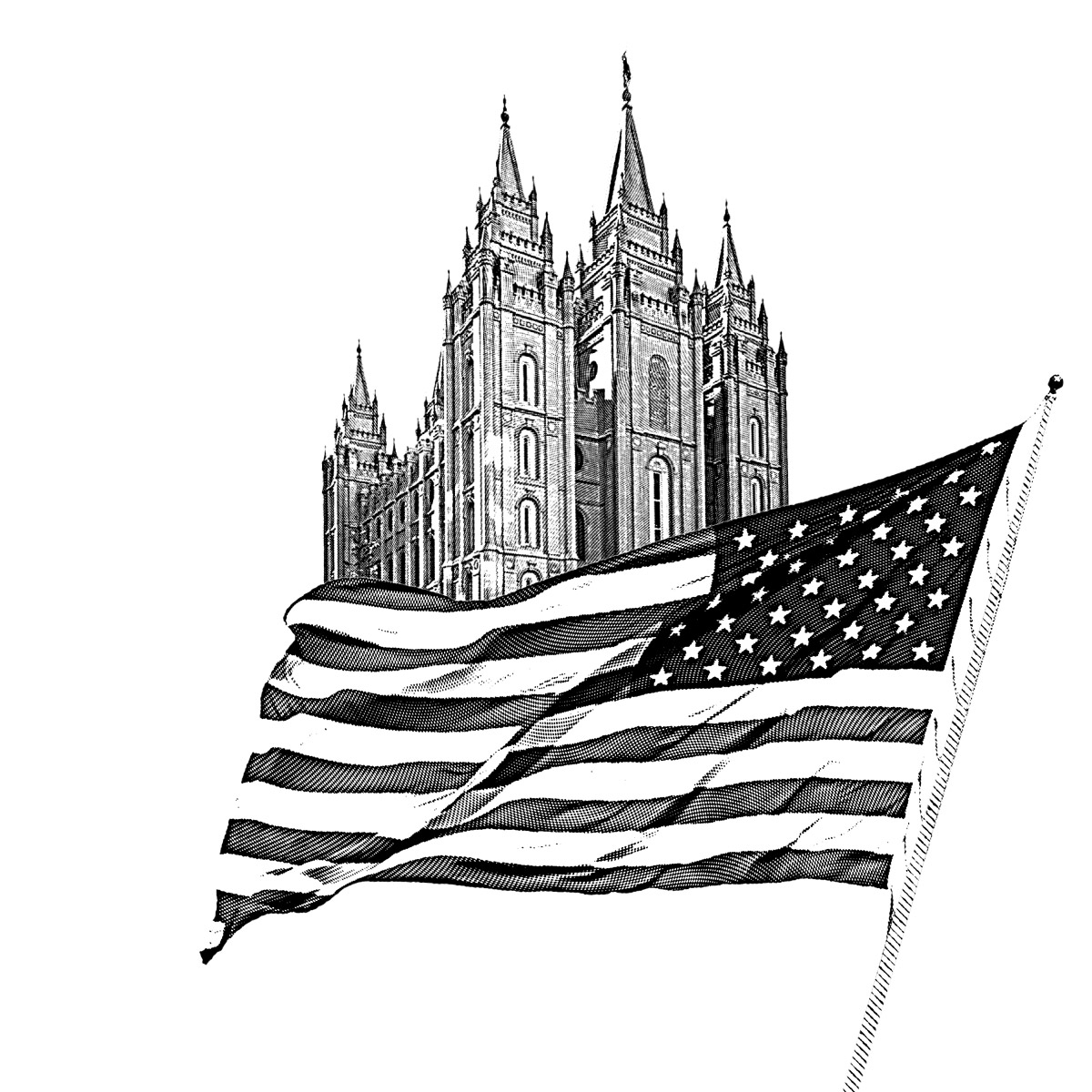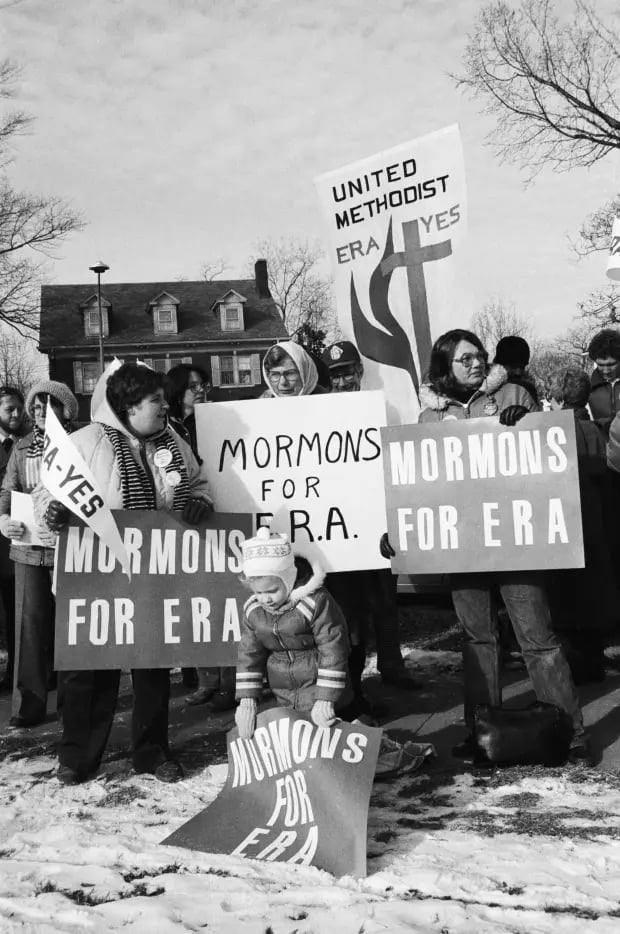Contemporary Church Political Policy

What is the official Church policy related to politics?
The Church’s official policy is to remain “neutral in matters of party politics.”[1] However, the Church takes positions on specific policies that have “moral consequences or that directly affect the Church.”[2]
Is this policy a violation of church and state?
Possibly. The dividing line between church and state has been litigated and debated since the founding of the United States.[3] The Church's policy outlines that the Church will get involved in legislation related to moral issues[4] but it does not support or endorse specific political parties or candidates.[5]
What does the Church advise its members to do with politics?
The Church encourages individual members to participate in politics and does not dictate any particular position or affiliation[6] and has stated the "principles compatible with the gospel may be found in various political parties."[7] However, at times the Church has encouraged members to vote on specific ballot measures.[8]
Is the Church a defacto republican institution?
For the most part, yes. A 2012 Pew survey reported that 74% of polled Latter-day Saints either identify as, or at least lean, Republican.[9] The Church also has aligned more with the Republican Party than the Democratic Party on some issues, such as its stance on abortion[10] or opposition to same-sex marriage.[11]
Related Question
Did Utah Senator Mike Lee say that Trump was like Captain Moroni?
Read more in Donald Trump and Captain Moroni
But doesn't the Church give in to progressive political or social trends?
Possibly. There are some instances where the Church, or some leaders, align with progressive platforms. For example, the Church has supported LGBTQ+ rights in Utah,[12] condemned the 2017 Unite the Right rally,[13] and spoken out against the separation of children from their parents at the U.S.-Mexico border.[14] The Church has also denounced racism[15] and holds a pro-immigration stance.[16]
Have Church political policies ever changed?
Yes. Over time, Church positions have changed on certain political issues (see below).
Evolving Church Political Policies
Political Issue or Policy | Earlier Position | Current Position |
Bloc Voting | During the 1860s and 1870s, Church leaders urged the Saints to engage in bloc voting. For instance, Brigham Young[BIO] encouraged bloc voting[17] as did John Taylor.[BIO][18] | The Church no longer encourages "bloc voting," and instead encourages people to vote as individuals.[19] |
Full-time Church Leaders Seeking Political Office | Joseph Smith ran for President of the United States, announcing his run on January 29, 1844,[20] and listed some of his reasons in a sermon on February 8, 1844.[21] | In the January 2019 statement, "The LDS Church Believes in Political Neutrality," the Church specifically prohibited General Authorities from any personal involvement in political campaigns entirely.[22]This statement would be updated on June 1, 2023, further underscoring the Church's neutrality.[23] |
In 1896, the Church issued the "Political Manifesto"[24] that allowed full-time Church leaders to seek political office if they received permission from their respective quorum leaders.[25] | ||
Encouragement to join the Republican Party | In the 1890s, Church leaders encouraged members to try to vote for more Republican candidates because there were too many members that were Democrats.[26] By 1892, the Republican Party was strong in Utah politics.[27] | Today, the Church does not endorse any particular political party.[28] |
Shouldn't Nonprofit Organizations (NPOs) that get involved in politics lose their tax-free status?
It depends. The laws on NPO activities differ from country to country.[29] In the U.S., NPOs are allowed to engage in political lobbying as long as it is not a substantial part of what they do as an organization.[30] NPOs can also engage in non-partisan activities and legislative/issue advocacy,[31] but cannot campaign for specific people running for office in public elections directly or indirectly.[32]
What was the position of the Church when Mitt Romney[BIO] ran for president?
During the Romney campaign, the Church reiterated this position, specifying that it does not “attempt to direct or dictate to a government leader.”[33]
Related Question
Does the White Horse Prophecy mean that a Mormon is going to run for president and take over the United States?
Read more in White Horse Prophecy
Are general authorities allowed to donate to political candidates or parties?
No. The Church’s policy was updated in January 2019 to forbid General Authorities from donating to political candidates or parties.[34]
What does the Church do when someone violates its political neutrality policies?
The Church’s General Handbook does not specify punishments for violating these policies.[35]
In 2021, it was reported that donations were made to various Democratic campaigns in the name of Elder Dieter F. Uchtdorf.[BIO][36] He was not publicly censured or punished by the Church.
Has anyone been excommunicated for political speech that the Church did not approve of?
The Church does not generally disclose the reasons for excommunications to the public,[37] and political speech is not included in the Church's General Handbook as something that requires a membership council,[38] however, there is at least one known instance in a German branch in 1942.[39]
Also, in 1979, Sonia Johnson[40] and Teresa Nielsen Hayden[41] claimed to have been excommunicated for their support for the Equal Rights Amendment.[42]

Does the Church pay for political lobbyists?
Yes. The Church paid professional lobbying firm APCO Worldwide $20,000 in 2020[43] and $10,000 in 2021[44] to lobby in favor of the Fairness for All Act (an LGBTQ rights bill)[45] with the United States Senate.[46]
Has the Church supported or opposed any specific legislation?
Yes (see below).
Church involvement in political issues
Issue | Church Position | Comments |
Women's Vote (1870) | For | On February 12, 1870, the Utah Legislature passed "An Act Conferring upon women the Elective Franchise" allowing all women over the age of twenty-one to vote in Utah.[47] This was positively received by Church leaders and women's voting was encouraged.[48] However, in 1887, the U.S. Senate passed Edmunds-Tucker Act (1887)[49] which (among other things)[50] removed the right for women to vote in Utah.[51] This right was not returned until the 1920 passing of the Nineteenth Amendment.[52] |
Alcohol Prohibition | For | In the early twentieth century, the Church supported attempts to introduce Prohibition.[53] After the passing of the Eighteenth Amendment in 1919,[54] the Church opposed it being appealed.[55] |
Federal Payments for Not Raising Crops on Farms (1941) | Opposed | The First Presidency of the Church opposed the legislation in the "New Deal" that resulted in federal payments for not raising crops on farms in a June 1941 letter addressed to Stake Presidents and Bishops.[56] |
Equal Rights Amendment (1972–1982) | Opposed | In October 1976, the First Presidency issued a statement articulating the Church's opposition to ERA.[57] |
Same-Sex Marriage (1997–2008) | Opposed | In 1997, the Church, alongside other institutions, produced an Amicus Brief filed in Baehr v. Miike.[58] In 2008, the Church mounted a state-wide campaigning effort in California to support Proposition 8.[59] |
| MX Missile Installation (1981) | Opposed | In May 1981, the First Presidency issued a statement opposing the construction of MX Missiles in Utah.[60] |
Religious Freedom Restoration Act of 1993 | For | The Church came out in support of the Religious Freedom Restoration Act which was passed in 1993. [61] |
Immigration Reform (2010s) | For | The Church supported a position that advocated for both border security and welcoming some immigration, even illegally.[62] |
Nondiscrimination laws in Utah for members of the LGBTQ+ community (2015) | For | Church leaders in 2015 came out in public support for laws that would protect members of the LGBTQ+ community from discrimination with respect to housing and employment.[63] |
Racism and Riots from the "Unite the Right" Rally (2017) | Opposed | In August 2017, the Church issued two statements condemning both racism in general as well as the Charlottesville riots and "white supremacy" specifically.[64] |
Utah Alcohol Laws | For | In February 2019, the Church came out in opposition to Senate bill 132 which proposed the elimination of 3.2 beer in Utah.[65] The Church has made statements about participating in Utah's alcohol legislation being a concern it is openly active in and public about,[66] including the distinction between "bars" and "restaurants."[67] |
Federal Fairness for All Act (2020–present) | For | In 2020 and 2021, the Church paid the professional firm APCO Worldwide[68] to lobby for the Fairness for All Act which prohibits discrimination on the basis of sexual orientation, or gender identity. |
Is tithing money used for lobbying?
Possibly, but probably not. According to Church teachings, tithing is only used for a narrow range of religious purposes.[69] Funds for lobbying would likely come from non-tithing financial resources of the Church.[70]
Related Question
Are temples built 100% with tithing funds?
Read more in Cost of Temples
If the Church is global, why do they seem to disproportionately spend energy on local Utah politics?
Utah has a high Latter-day Saint population[71] and is where the Church's headquarters are located.[72]
- Brad
“I think it is important to remember that the 74% Republican figure refers to U.S. members of the Church, which is an ever-shrinking percentage of the overall membership. I also think that number has probably dropped substantially since 2016.”



 about this topic
about this topic